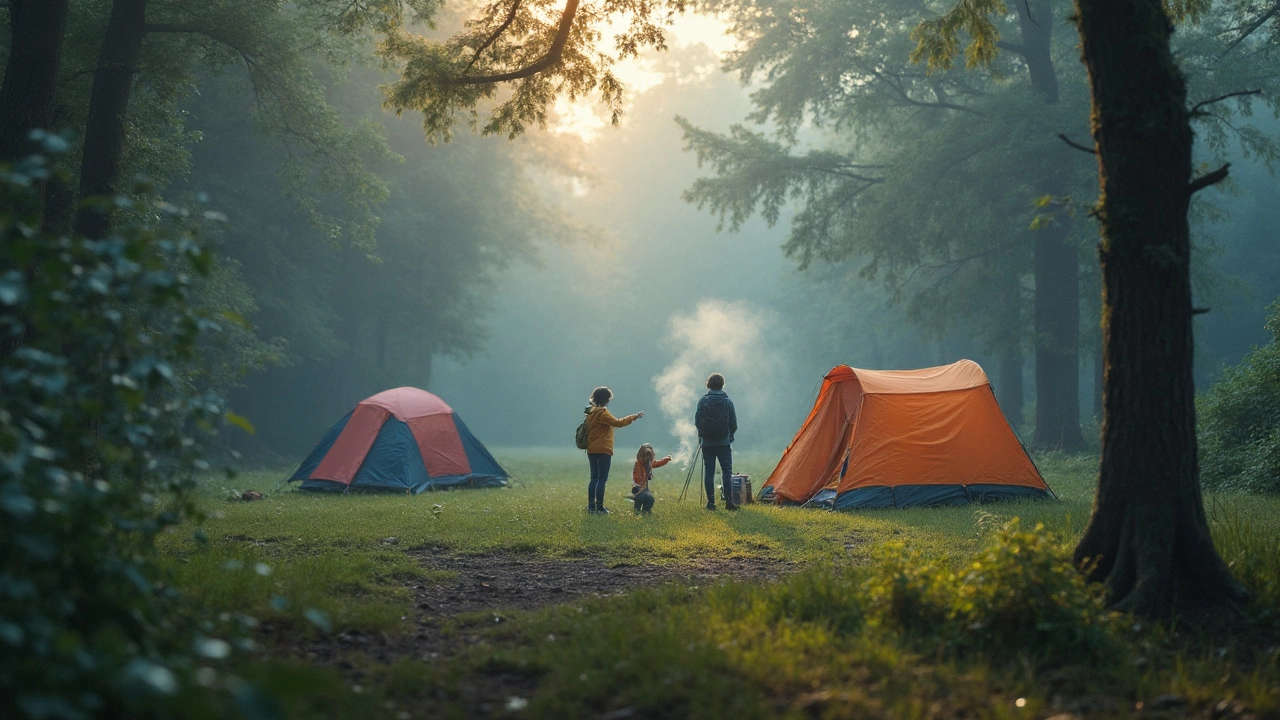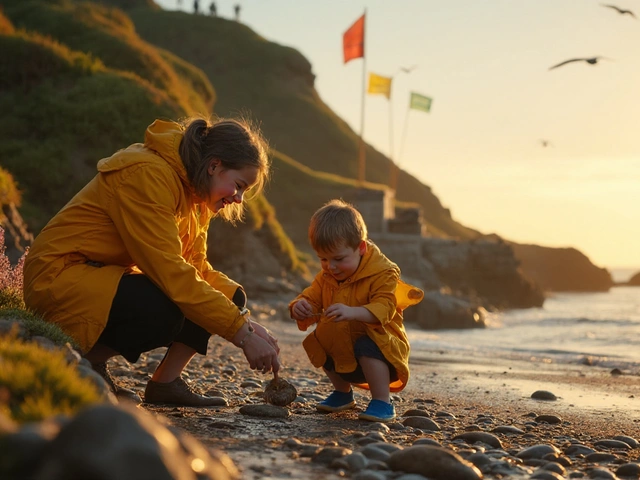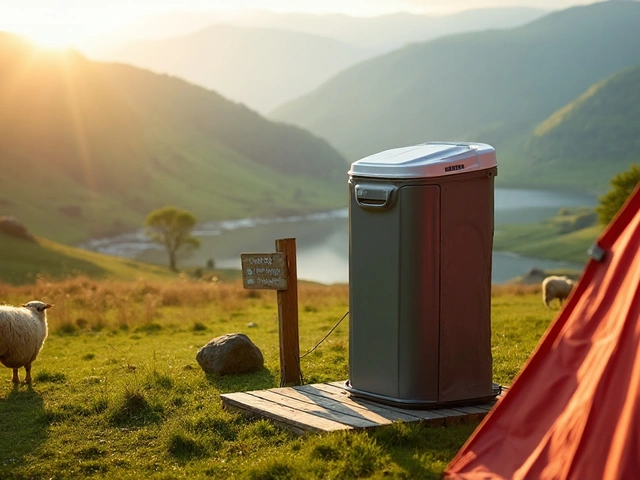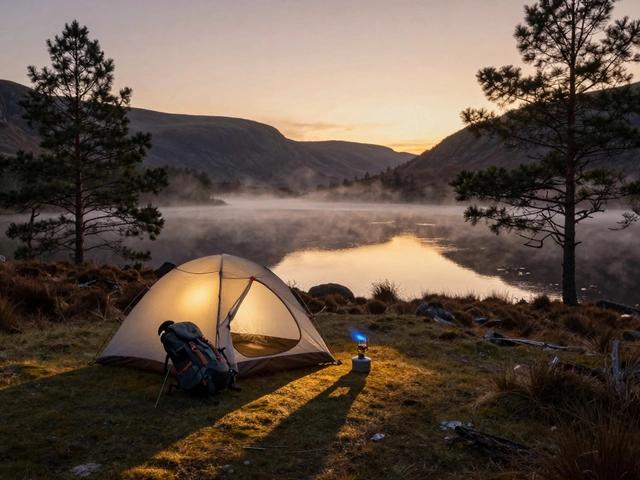If you’ve ever swapped campfire stories in the UK, you’ve probably heard someone swear by peeing around the tent to keep predators out. Sounds a bit wild, right? But enough folks do it that it begs the question: is there something to this, or is it just one of those things desperate campers try when the woods get creepy?
First things first—let’s clear something up. The whole idea comes from the fact that animals use scent to mark territory. So, the leap is: if you mark your campsite with your own scent, maybe the animals will think you’re a bigger, scarier beast and stay away. If you’re new to camping or heading out with your family, maybe even your little ones like Larkin, it seems almost too simple to work.
But what are we actually worried about out there? The UK isn’t exactly crawling with wolves and bears, so let’s think about what animals you might actually run into at a campsite. Once we figure that out, we can dig into whether human pee is a real deterrent—or just a waste of time and a bit awkward with neighbours nearby.
- Where Did This Camping Myth Come From?
- What Predators Do UK Campers Actually Face?
- Does Human Urine Repel Animals?
- Real-World Tips for Keeping Animals Away
Where Did This Camping Myth Come From?
This idea of using pee as a natural fence didn’t just pop up yesterday. If you go way back, people have relied heavily on scent marking—mostly after seeing what animals do. Wolves, foxes, and even deer mark their turf with urine to warn off rivals. Somewhere along the line, campers guessed that if it works for wild animals, it might keep them away too.
This old-school trick caught on most in places like North America, where bigger predators roam. Folks over there started using human urine to try to ward off bears. It’s been written up in bushcraft books and passed around as "common sense" at campsites, including in the UK, even though our wildlife is pretty different.
Some people mention that back in the days of early hunting and trapping, outdoorsy types made a habit of marking their camps with urine to create a "human scent barrier." The theory is, if a wild animal sniffs someone’s presence, it might just steer clear. Outdoor survival forums, magazines, and a few YouTube bushcrafters in the UK still toss this tip around as a way to deal with foxes or badgers digging for food at night.
Here’s a quick snapshot of how folks have used scent marking as a camping safety move in the past:
- Hunters marking food caches by urinating nearby
- Backpackers peeing around tents to "warn" wild dogs or foxes
- DIY animal deterrents tested on small farms and in gardens
It’s one of those tips that’s easy to try and doesn’t cost a thing. That’s probably why it’s stuck around. But does that make it effective in the UK? Before we get into whether it actually works, check out what animals UK campers are really dealing with these days.
| Region/Country | Predators Concerned | Who Swaps This Tip? |
|---|---|---|
| North America | Bears, wolves, coyotes | Hunters, backpackers, woodsmen |
| UK | Foxes, badgers, wild boar (rarely) | Campers, bushcraft fans |
What Predators Do UK Campers Actually Face?
When it comes to wild animals in the UK, the idea of running into a dangerous predator is pretty rare. Forget grizzlies or mountain lions—campers here are dealing with much milder wildlife. It’s way more common to see a fox eyeing up your leftover sausages than to worry about anything that actually sees humans as prey.
Let’s break it down. The main animals you might bump into at a campsite in the UK are:
- Foxes: Smart, sneaky, and always hungry for your scraps. Foxes are bold but not dangerous to people.
- Badgers: These guys are more interested in worms than tents. They’ll happily rummage through your rubbish if you’re careless, but they avoid real trouble.
- Deer: Usually shy and easily spooked. More likely to eat your apples quietly at night than bother your camp.
- Rodents (mice, rats): They come for food crumbs and anything they can drag off. Keep an eye on your snacks.
- Wild boar: Making a slow comeback in some woods, but still pretty rare. They can be noisy if rooting around your camp, but not out hunting for people.
Admittedly, we do have adders—the UK’s only venomous snake—but bites are uncommon and usually happen when someone steps on one. They’re not out to stalk tents at night.
Here’s a quick look at how risky these animals actually are for campers:
| Animal | Common at Campsites | Potential Danger to Humans |
|---|---|---|
| Fox | Yes | Very low |
| Badger | Sometimes | Very low |
| Deer | Yes | None |
| Rodents | Yes | None (but annoyingly hungry) |
| Wild Boar | Rare | Low (if provoked) |
| Adder | Rare | Only if stepped on |
If you’re camping with kids or just nervous about wildlife, it’s good to know you’re a lot more likely to wake up to rustling bin bags than an animal sizing you up for a meal. The key risk is losing your snacks—not your safety. Food left out, strong smells, and messy campsites attract these critters far more than anything else.
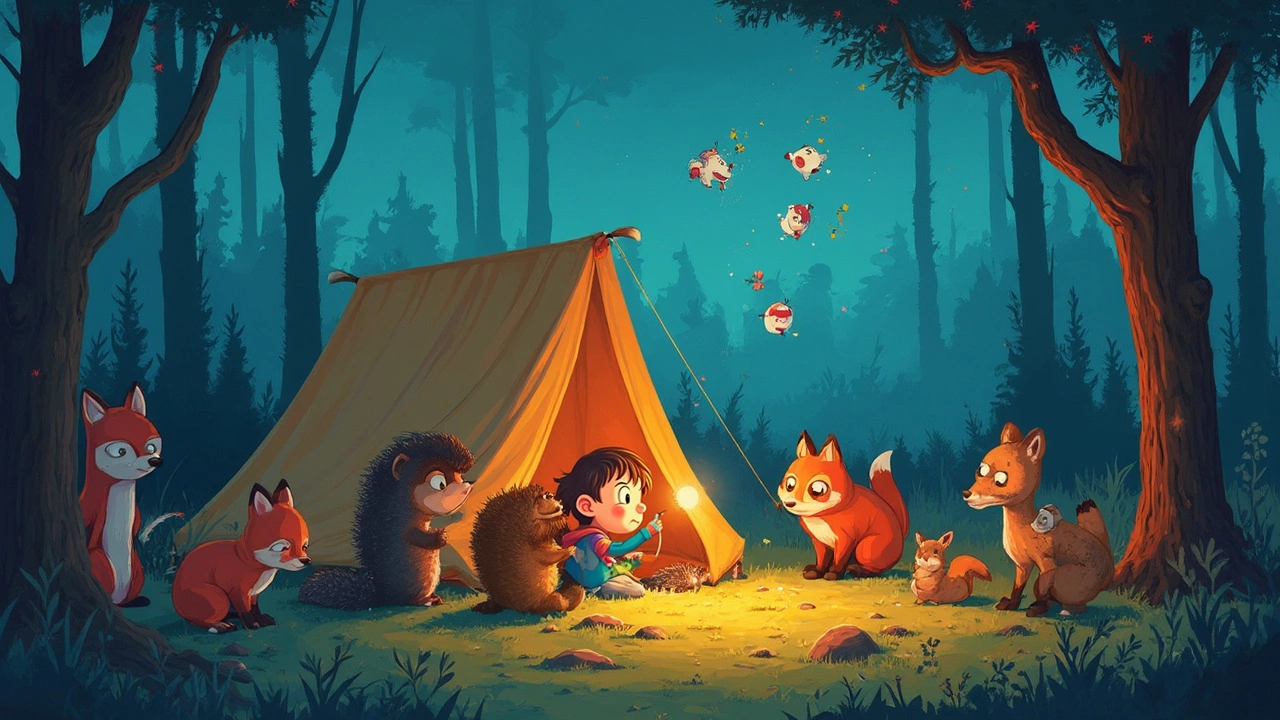
Does Human Urine Repel Animals?
This camping hack pops up all the time: will peeing around your tent at a UK campsite keep animals away? Let’s get into the nitty-gritty, because the answer’s not as clear-cut as some folks think.
Some animals use urine to mark territory—think foxes, badgers, or dogs. The idea is, if an animal smells a stranger’s scent, especially human, it might get nervous and steer clear. That sounds great in theory, but real-life studies and expert opinions don’t make a strong case for it actually working very well, especially with the kind of wildlife you find in the UK.
Here’s a look at what science and outdoor experts have found about this trick:
| Animal in UK | Urine Response | Likely to Avoid Campsite? |
|---|---|---|
| Foxes | Might sniff, but not afraid of human scent | No, likely to be curious or unfazed |
| Badgers | Not deterred by human urine | No |
| Deer | May notice, usually not affected | Rarely |
| Rats/Mice | Don't care; drawn by food, not scent | No |
So, for most common critters at UK campsites, peeing around your pitch isn’t doing much. Animals like foxes and badgers hang around urban areas all the time and get used to people and our scent. Some smaller animals (like mice or hedgehogs) don’t even process human smell as a danger.
Also, these animals are way more interested in food than whatever weird scent marks you leave behind. This is why experts at National Parks or wildlife trusts suggest focusing on proper food storage over marking territory with urine.
- If your real goal is camping safety, stash food in airtight containers.
- Don’t leave rubbish or leftovers lying about.
- Campers who tried this trick have found that animals can still wander right through the "pee barrier."
One last thing: peeing around your tent can be noticed by other campers, rangers, or landowners, and in a busy campsite, it’s really not a good look (or smell). If you’re wild camping, and you must go, think about the local water sources and hygiene. The UK’s Leave No Trace code also asks everyone to avoid this sort of thing to keep sites pleasant for the next person.
Real-World Tips for Keeping Animals Away
Forget the myths—nobody wants their campsite raided by foxes, badgers, or cheeky squirrels. So, if you want a solid shot at a peaceful night’s sleep, there are a bunch of proven tricks that work a lot better than marking your territory.
First up, camping safety starts with managing your food. Most animals that pop by in the UK are after your snacks, not you. A study in 2022 from a group of Scottish rangers found that 90% of campsite animal incidents were food-related. That’s huge. So, if you leave your leftover sausages or biscuits out, you’re basically sending an RSVP to every animal nearby.
- Put all food and rubbish in sealed containers or bags. Squirrels and foxes are crafty, but they’re not Houdini.
- Never take food into your tent—crumbs will attract animals overnight.
- Dispose of rubbish properly, either in campsite bins with secure lids or take it with you.
- Wipe down your cooking area before hitting the hay, so there’s no invisible buffet waiting for hungry noses.
Another hack is using natural repellents—citrus peels, for example, work against foxes and cats. You don’t need to buy fancy sprays; just toss a few orange or lemon peels around where you cook or eat.
Lights help too. The RSPB recommends a small battery lantern or some fairy lights, since sudden brightness can spook most UK wildlife. Solar lights are cheap, last all night, and add a bit of safety for finding the loo.
Here's a quick table so you know who you’re up against and what actually keeps them out:
| Animal | Main Attraction | Best Deterrent |
|---|---|---|
| Fox | Food scraps/rubbish | Sealed bins, citrus peels, lights |
| Badger | Any food smells | Don’t leave food out, tidy camp |
| Squirrel | Loose food or crumbs | Store food away, don’t eat in tent |
| Deer | Some plants, leftovers | Keep area clean, use lights |
Animals can be persistent, but they’re also lazy—if they don’t smell an easy meal, they’ll usually move on. When I go out camping with my son Larkin, we make a game out of the evening clean-up and see who can spot the most animal-proofed tent at the site. Works like a charm and keeps the snacks safe. Not gonna lie, leaving a tent smelling like oranges instead of pee? That’s a win for everyone.
